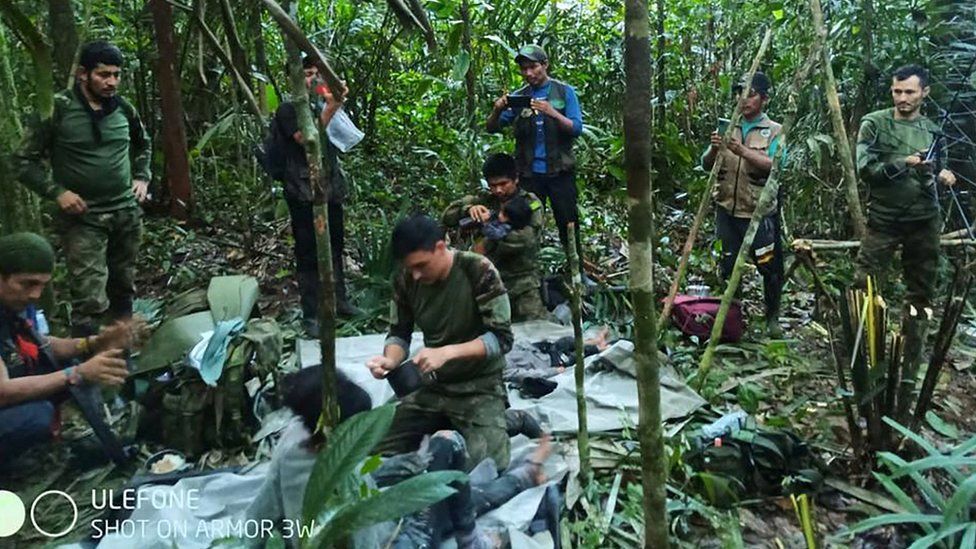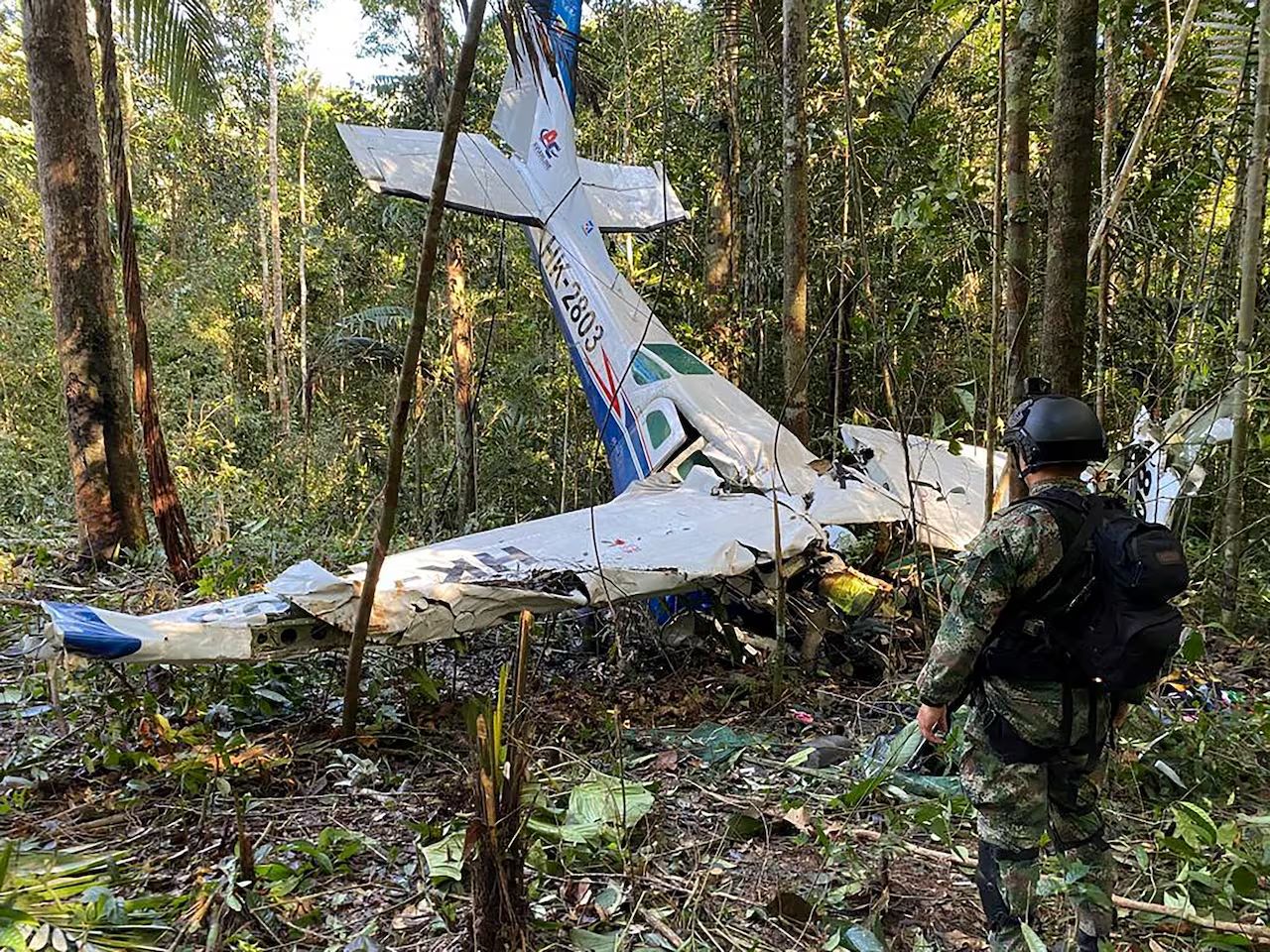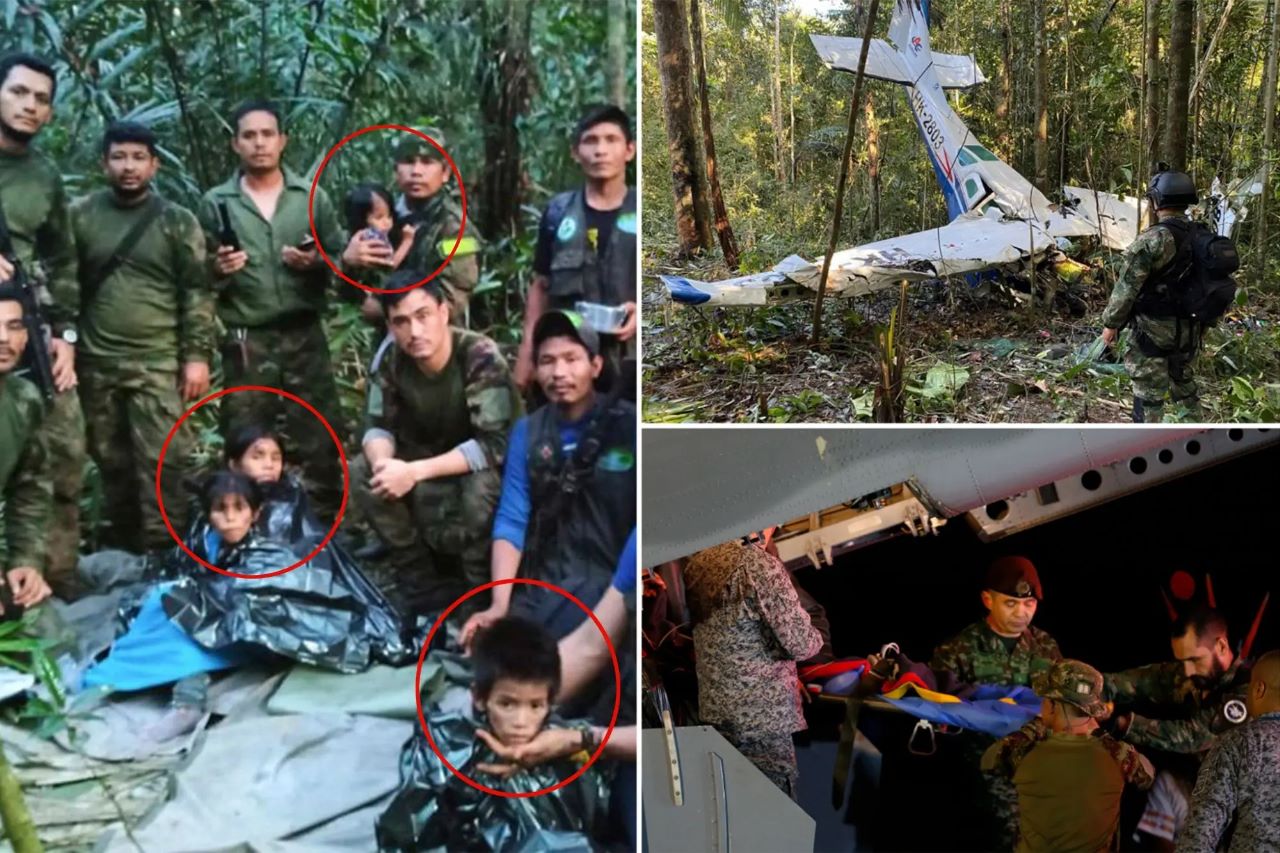The mother of four children saved after 40 days in the Amazon jungle survived the crash for four days. As she lay dying, Magdalena Mucutuy ordered her children to go and seek help.
The children's father, Manuel Ranoque, told reporters that his eldest daughter told him their mother pushed them to "get out" and rescue themselves.
On Friday, the siblings, ages 13, nine, five, and one, were rescued and airlifted out of the bush. They were transferred to a military hospital in Bogota, Colombia's capital.
"The one thing [13-year-old Lesly] has cleared up for me is that, in fact, her mother was alive for four days," Ranoque said outside the hospital.

Did you read this?
"Before she died, their mother said something to the effect of, 'You guys get out of here.'" "You'll see what kind of man your father is, and he'll show you the same kind of great love that I've shown you," he continued.
Details regarding the children's time in the bush and miraculous rescue had begun to emerge, including the children's first words when they were discovered.
Nicolas Ordonez Gomes, a rescue worker, remembered when they spotted the youngsters.
"The eldest daughter, Lesly, ran towards me with the baby in her arms." "'I'm hungry,' Lesly said," he told state broadcaster RTVC.
"One of the two youngsters was on the ground. He stood up and told me, 'My mother is dead.'" He claimed that rescuers answered with "positive words, saying that we were friends sent by the family."
According to Ordonez Gomes, the youngster said, "I want some bread and sausage."

The four brothers seemed gaunt following weeks of surviving for themselves in the bush in footage published on Sunday of their rescue.
Ms Mucutuy and her children were flying from Araracuara, in Amazonas province, to San José del Guaviare on May 1 when the Cessna 206 issued a Mayday call due to engine failure.
The bodies of the mother and the two pilots were discovered at the crash site by the army, but the children appeared to have gone into the rainforest in search of aid.
The missing youngsters became the focus of a massive search and rescue operation involving dozens of military and locals.
Rescuers located the youngsters after discovering clues in the jungle, like footprints and chewed fruit.
The children's commune members had thought that their knowledge of fruits and forest survival abilities would help them survive.
According to Astrid Cáceres, director of the Colombian Institute of Family Welfare, the timing of their struggle meant that "the jungle was in harvest", and they could eat the fruit in bloom.









